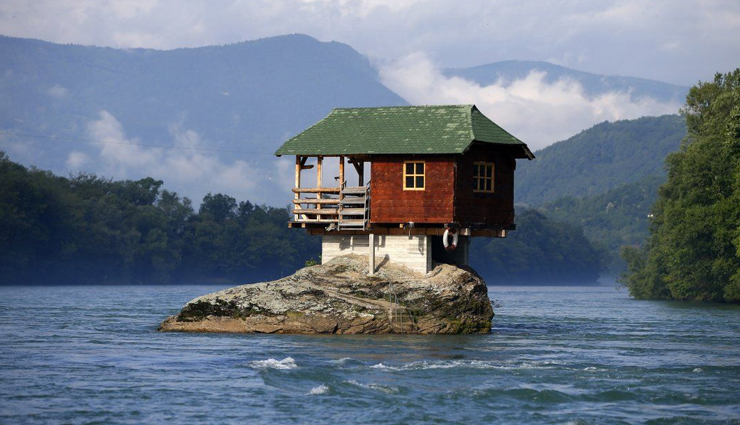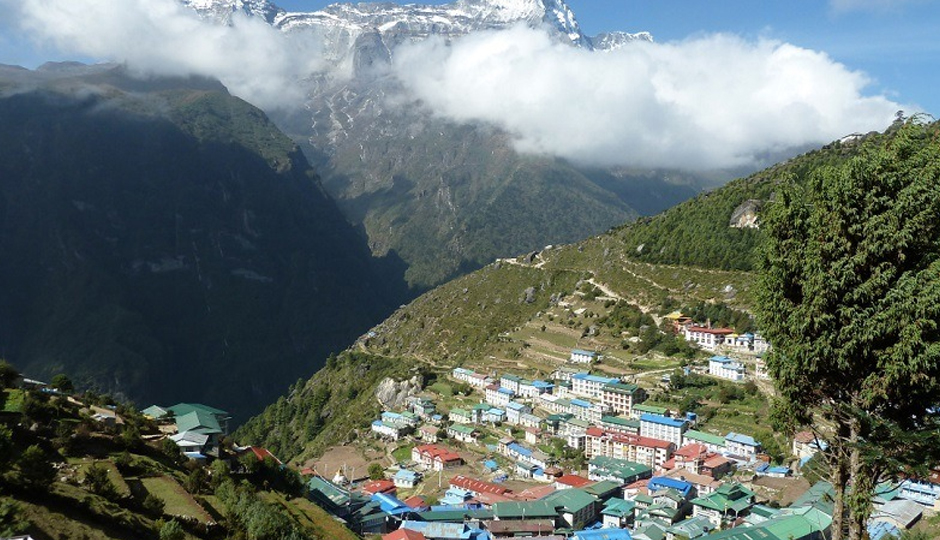5 Most Unusual Rock Islets You Must Visit
By: Kratika Maheshwari Tue, 01 Mar 2022 8:19:43

Usually, rock islet is a landform composed of rock, lying offshore, uninhabited, and having at most minimal vegetation. But sometimes, rock islets don't look exactly like this - some are naturally strange looking, and some of them people have adapted to their own needs and made them pretty unusual. Uniqueness makes these small islands very popular among local visitors, foreign tourists and photographers from around the world.

# New Eddystone Rock, Alaska, USA
The Alaskan island called New Eddystone Rock is a pillar of basalt. The basalt came from fractures in the floor of Behm Canal (natural channel in Alaska). The broken, haphazard texture of these basalts indicates that New Eddystone Rock was part of a volcanic vent where magma rose repeatedly to the surface of the earth.

# Fastnet Rock, Ireland
Fastnet Rock or simply Fastnet is a small islet in the Atlantic Ocean and the most southerly point of Ireland. Due to its location, Fastnet was known as 'Ireland's Teardrop' because it was the last part of the country that Irish emigrants would see as they sailed to the United States in the 19th century.

# Turnip Rock, Michigan, USA
Just off the Michigan shore in Lake Huron is Turnip Rock, a large turnip-shaped rock-island. The unique shape is the result of thousands of years of erosion by storm waves. Twenty-foot-high (6 m) trees and other vegetation have grown at the top of the isolated rock. The surrounding land is privately owned, so visitors can only view the rock via boat or over the frozen lake in the winter.

# Dunbar Rock, Honduras
On this small island in Honduras, is located an incredible resort. The villa at Dunbar Rock is one of the Caribbean's most unique dive resorts; truly one of a kind. It is so well known and unusual that it's featured in the Government of Honduras tourism advertisements and on its own postcard.

# Stenčica (Little Rock), Serbia
House in the middle of Drina River is situated on Stenčica islet, near the town of Bajina Basta, Serbia. Precisely, this town lies in the valley of the Drina River at the eastern edge of Tara National Park. In 1968 local kids have erected the first structure on this islet, like a retreat and without a building permit proper. Not only the natural setting is intriguing but also the fact that it sits on the river which now represents border between two countries (Serbia & Bosnia and Herzegovina), territory not belonging to either jurisdiction, sort of duty free zone. The structure was rebuilt several times since then. Whenever torrential rain and flood take the structure down, one of the original builders, Milija Mandic Gljiva, would build a new one





